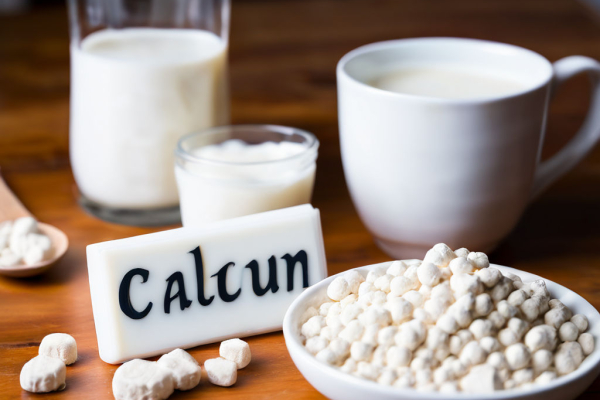- Europa
-
- Amstetten(7)
- Bad Schallerbach(1)
- Baden(4)
- Berg(1)
- Braunau am Inn(5)
- Bregenz(3)
- Bruck an der Mur(1)
- Graz(4)
- Hartberg(1)
- Innsbruck(5)
- Kemmelbach(1)
- Kitzbühel(4)
- Klagenfurt(5)
- Krems an der Donau(1)
- Kufstein(5)
- Leibnitz(1)
- Lienz(1)
- Liezen(1)
- Linz(5)
- Oetz(1)
- Punitz(1)
- Radstadt(1)
- Salzburg(5)
- St Polten(2)
- Steiermark(1)
- Steyr(1)
- Steyregg (1)
- Traun(3)
- Vienna(26)
- Villach(5)
- Völkermarkt(1)
- Wels(5)
- Wien(1)
- Wiener Neustadt(4)
-
- Aalst(1)
- Aarschot(2)
- Affligem(1)
- Anderlecht(5)
- Antwerp(11)
- Antwerpen(1)
- Arlon(6)
- Ath(2)
- Aubange(5)
- Bastogne (2)
- Blankenberge (1)
- Bruges(5)
- Brussels(15)
- Charleroi(5)
- Deinze(3)
- Dendermonde(1)
- Diest(2)
- Etterbeek(5)
- Geel(1)
- Genk(5)
- Gent(6)
- Geraardsbergen(1)
- Grimbergen (2)
- Hasselt(5)
- Heusden- Zolder(2)
- Ieper(1)
- Izegem(1)
- Knokke(4)
- Kortrijk(2)
- La Louviere(2)
- Leuven(5)
- Liege(4)
- Limburg(4)
- Lommel(1)
- Mortsel(1)
- Oostende(1)
- Turnhout(1)
-
- Chelyabinsk(1)
- Dubna(4)
- Gelendzhik(1)
- Irkutsk(1)
- Kaliningrad(1)
- Kazan(4)
- Krasnodar(3)
- Krasnoyarsk(1)
- Maykop(1)
- Moscow(50)
- Nizhny Novgorod(4)
- Novosibirsk(1)
- Omsk(1)
- Penza(1)
- Rostov-on-Don(2)
- Saint Petersburg(13)
- Samara(1)
- Saratov(1)
- Serpukhov (2)
- Sevastopol(3)
- Sochi(5)
- Stavropol(1)
- Surgut(1)
- Tyumen(2)
- Ufa(2)
- Vladivostok(3)
- Yekaterinburg (11)
-
- Alicante(8)
- Barcelona(113)
- Benalmadena(1)
- Benidorm(7)
- Castellón de la Plana(1)
- Denia(1)
- Estepona(1)
- Fuengirola (3)
- Ibiza(49)
- Jerez de la Frontera(1)
- Lanzarote(1)
- Las Palmas de Gran Canaria(5)
- Madrid(57)
- Malaga(9)
- Marbella(48)
- Murcia(1)
- Oviedo(1)
- Palma de Mallorca(48)
- Puerto Banus(3)
- Seville(1)
- Tarragona(1)
- Tenerife(7)
- Torrevieja(3)
- Valencia(9)
- Vigo(1)
- Zaragoza(1)
- Worldwide
Marine Calcium: The Foundation of Health and Beauty

Calcium is the most abundant mineral in the human body, primarily serving as the building material for bones. Interestingly, the average person has about 1 kg of calcium in their body, with 99% of it residing in the skeleton.
The Importance of Calcium
We often consider the importance of calcium when we notice problems such as dental issues, brittle bones, hair loss, or fragile nails. A deficiency in calcium can lead to brittle bones and nails, constant dental problems, split ends, tingling in fingers, numbness in hands and feet, and cramps. Calcium is essential for the nervous system and muscle function, boosting immunity, reducing allergic reactions, and regulating heart function. It is crucial for strong bones, muscle growth, and many metabolic processes.
Often, the first signs of calcium deficiency become evident when osteoporosis develops, and a seemingly minor fall results in a fracture.
Sources of Calcium
The body cannot produce calcium on its own; it must be obtained through a balanced diet. It's crucial to ensure adequate calcium intake throughout life. However, calcium is difficult to absorb from food. Even with a diet rich in milk, fish, and vegetables, the body absorbs only about 25-30% of the available calcium.
Foods High in Calcium
- Aged hard cheese
- Fermented dairy products without added sugar (natural cottage cheese, yogurt, kefir with short shelf life in glass or paper packaging, goat and sheep milk products)
- Egg yolk
- Seeds (sesame, poppy, flax, hemp, amaranth, chia, mustard)
- Nuts (almonds, Brazil nuts, walnuts, hazelnuts, pistachios)
- Fish and seafood (sardines, crabs, shrimp, shellfish)
- Vegetables (all types of cabbage, onions, olives, greens)
- Legumes (soybeans, beans, peas)
Detecting Calcium Deficiency
Blood tests cannot reliably indicate calcium deficiency. When blood calcium levels drop, calcium begins to leach from bones into the bloodstream. This means that a person could be developing osteoporosis while blood tests still show adequate calcium levels. Therefore, it’s essential to monitor your overall well-being for signs of deficiency.
Early Symptoms of Calcium Deficiency
- Fatigue
- General weakness
- Drowsiness despite adequate sleep
- Rapid fatigue
- Lowered immunity
- Tendency to bleed (e.g., nosebleeds, bleeding gums)
- Unexplained bruising
If these symptoms are ignored, further signs may include brittle hair, deteriorating nail quality, weakened tooth enamel, and cavities.
Who Needs Calcium the Most?
Women Over 40: Hormonal changes before menopause, such as decreased estrogen and increased progesterone, accelerate calcium loss from bones.
Older Adults: Calcium tends to accumulate in the body up to the age of 20-25. After this period, calcium levels stabilize, but later, the tendency to lose calcium increases.
People with High Physical Activity: This is especially true for men involved in bodybuilding. Rapid muscle growth increases calcium demand, and if not replenished, it will be leached from the bones.









